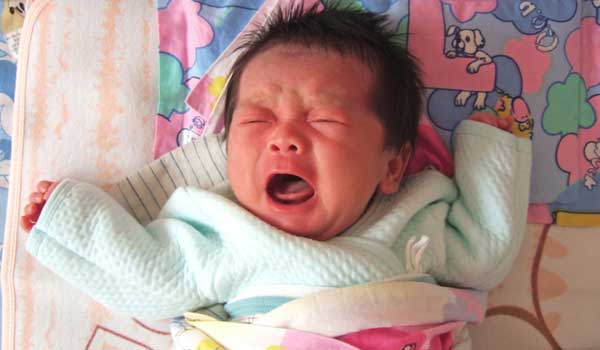Why Baby's Hungry Cry Tugs at Women (But Not Men)

Get the world’s most fascinating discoveries delivered straight to your inbox.
You are now subscribed
Your newsletter sign-up was successful
Want to add more newsletters?

Delivered Daily
Daily Newsletter
Sign up for the latest discoveries, groundbreaking research and fascinating breakthroughs that impact you and the wider world direct to your inbox.

Once a week
Life's Little Mysteries
Feed your curiosity with an exclusive mystery every week, solved with science and delivered direct to your inbox before it's seen anywhere else.

Once a week
How It Works
Sign up to our free science & technology newsletter for your weekly fix of fascinating articles, quick quizzes, amazing images, and more

Delivered daily
Space.com Newsletter
Breaking space news, the latest updates on rocket launches, skywatching events and more!

Once a month
Watch This Space
Sign up to our monthly entertainment newsletter to keep up with all our coverage of the latest sci-fi and space movies, tv shows, games and books.

Once a week
Night Sky This Week
Discover this week's must-see night sky events, moon phases, and stunning astrophotos. Sign up for our skywatching newsletter and explore the universe with us!
Join the club
Get full access to premium articles, exclusive features and a growing list of member rewards.
The idea that women are hard-wired to respond to babies is supported in a small new brain scan study from Italy.
Women in the study who listened to the sounds of a baby crying in hunger showed a change in activity in certain brain regions, but men showed no change.
The study included nine men and nine women, some of whom were parents. Most participants were in their 30s. Researchers at the University of Trento asked participants to let their minds wander, and then played a recording of about 15 minutes of white noise, interrupted with periods of silence and the sounds of a hungry infant crying.
In women's brains, there was a decrease in activity in two areas known to be active during mind wandering — the dorsal medial prefrontal and posterior cingulate areas. By contrast, these regions in men's brains remained active when they heard the baby's cries, according the study.
The study shows that "women interrupt mind wandering when exposed to the sounds of infant hunger cries, whereas men carry on without interruption," the researchers wrote.
The brain patterns were not different between parents and nonparents in the study, the researchers said. This suggests that women may be predisposed to care for infants other than their own, the researchers said, though more study is needed to see whether this idea is held up.
Previous studies have shown that women are more likely than men to say that hearing an infant cry evokes feelings of sympathy and caregiving, while men are more likely to say that crying evokes irritation and anger.
Get the world’s most fascinating discoveries delivered straight to your inbox.
Other work has shown that mothers' suffering from postpartum depression have muted brain activity patterns when they hear their baby cry, compared with nondepressed women.
The study was published in the February issue of the journal Neuroreport.
Pass it on: Hungry baby's cry affects the mother's brain, and evokes sympathy and caring.
Follow Karen Rowan @karenjrowan. Follow MyHealthNewsDaily @MyHealth_MHND, Facebook & Google+. Originally published on MyHealthNewsDaily.

 Live Science Plus
Live Science Plus










